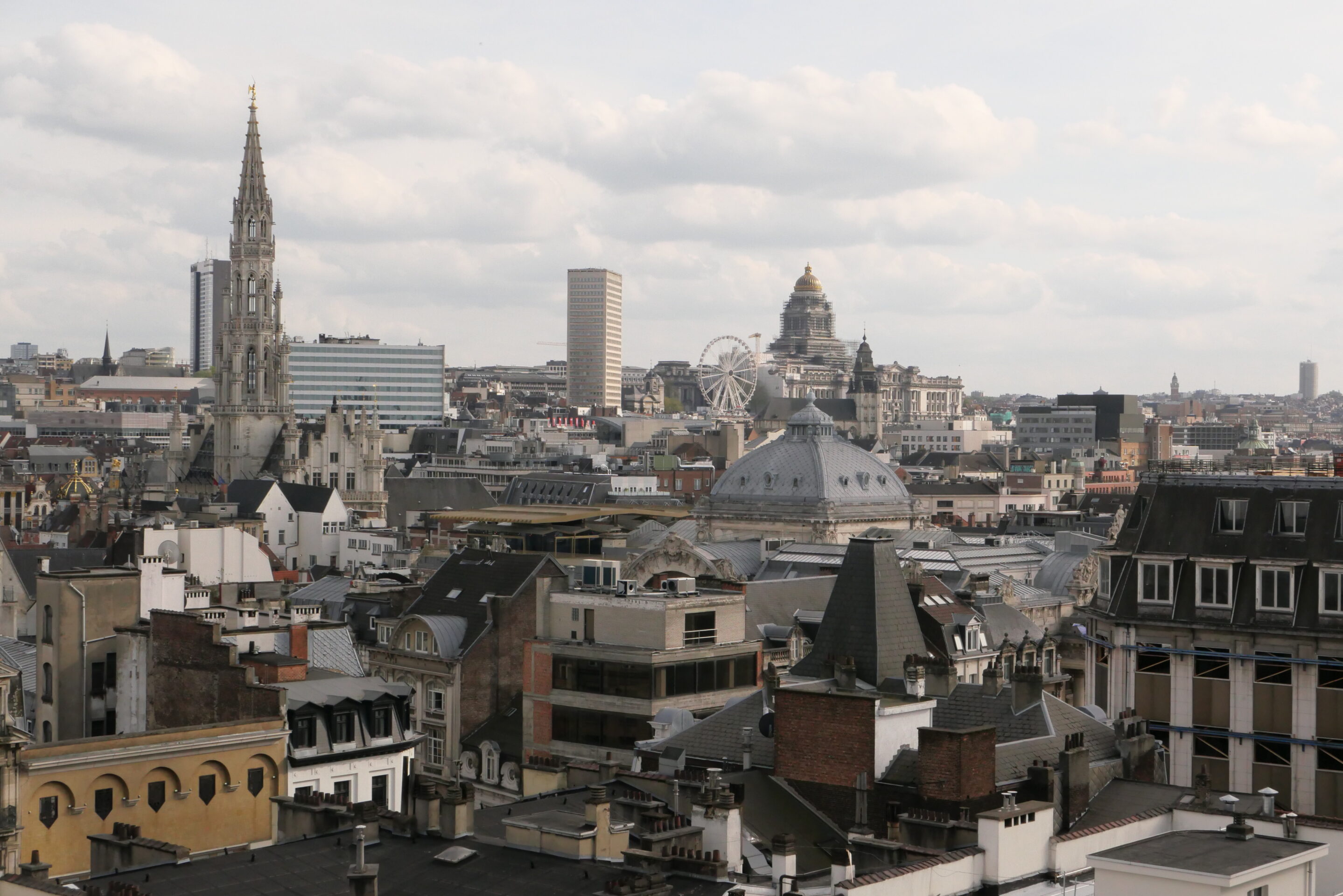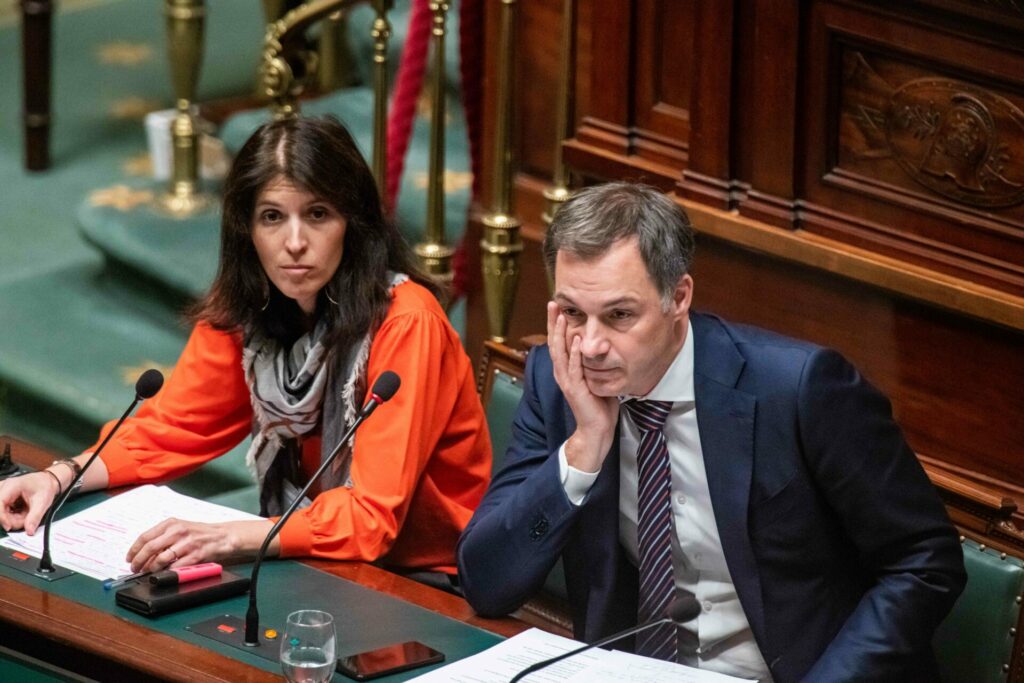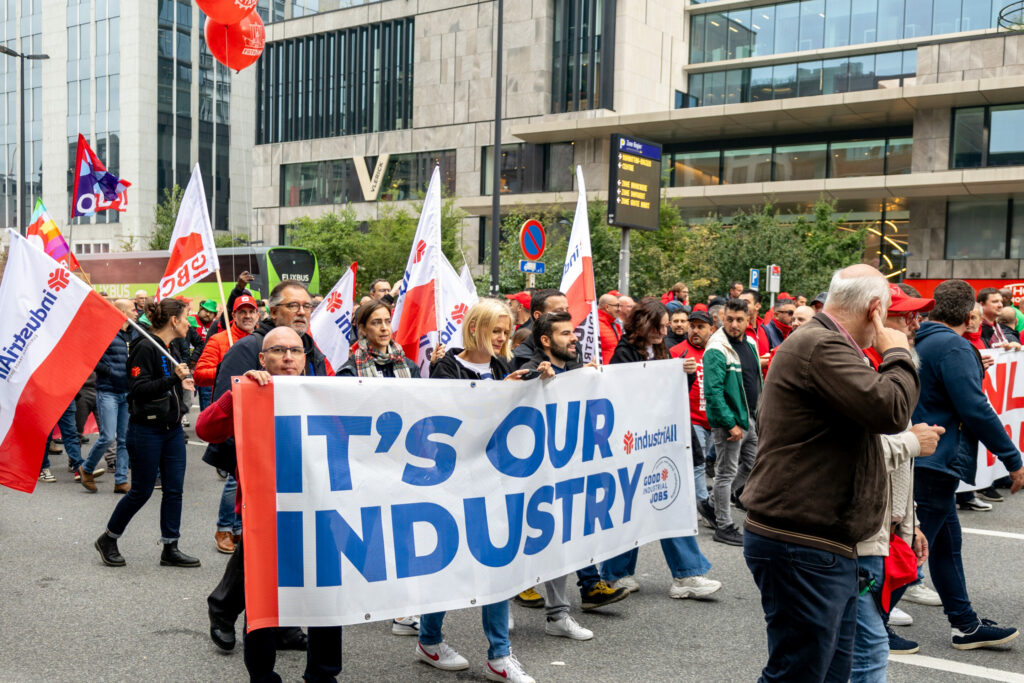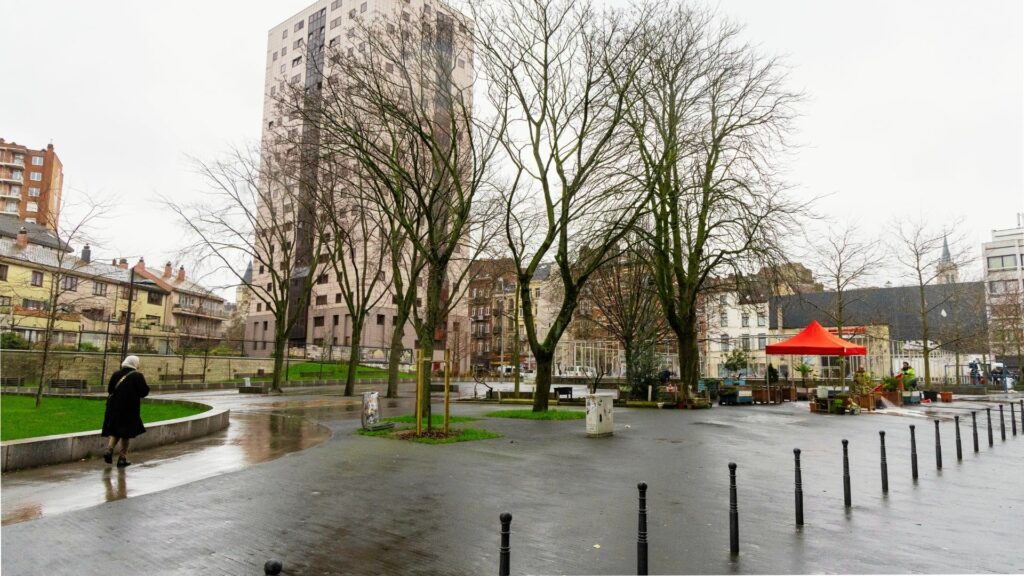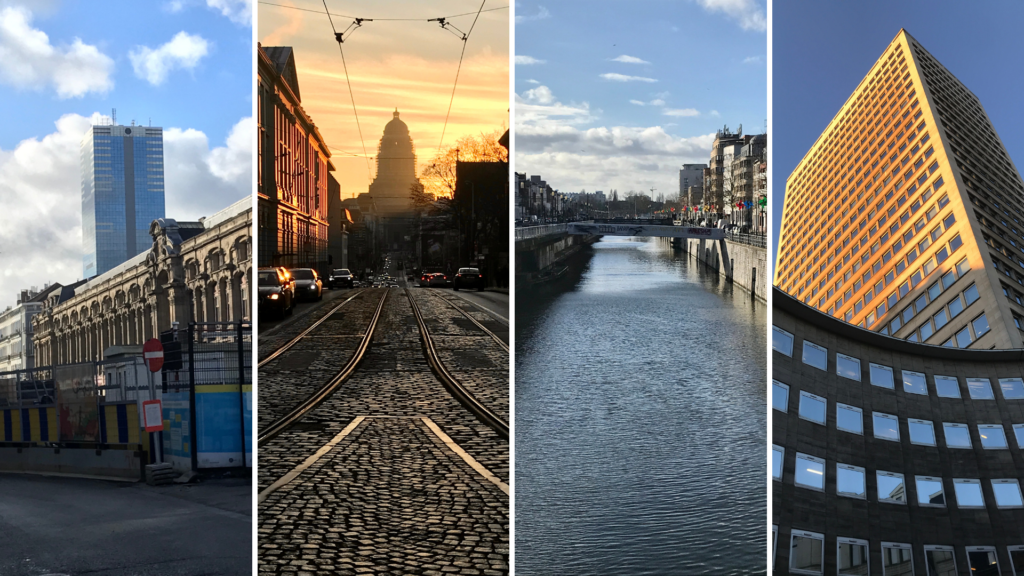News is by nature busy. We’re here to tell you how the world is changing and are trained to jump on every development in current affairs – whether it’s a strike to watch for on your way to work, rules to protect tenants from rampant rent hikes, or another falling out among politicians who are supposed to form the next government. The cascade of information never lets up and we tend to focus on how things are different today from yesterday. Stepping back to see the longer-term trends is a habit we practise less often.
But reflecting on the past 12 months, it does seem that 2024 has been unusually frenetic, even for an industry that thrives on the hubbub of human drama. Every year brings new records and grave milestones to report on and in doing so, we can slowly become desensitised to their significance. Watching the highs and lows of modernity relayed to our screens, watershed moments are absorbed into the unending progress – or decline – of civilisation.
Superlatives like disaster and crisis are now used so liberally that language itself struggles to convey the magnitude of events unfolding around us. And whilst it’s hard to imagine a news commentator concluding that the past year has been nothing out of the ordinary, 2024 has unquestionably provided more calamity and heartbreak, suspense and suffering than even the most energetic newsroom is used to handling.
It behoves us to look back on the central tensions and key junctures of the past months in order to recognise just how consequential this year has been. Already it is clear that the European way of life and living standards we used to take for granted are under immediate threat. If we hope for a future that brings security and prosperity, it would be an error to let 2024 wash over us unremarked. It has been a momentous year defined by our power to exceed expectations when united and when divided, our ability to upset the balance of normality.
Here are the highlights through the lens of The Brussels Times.
Politics
In a year that saw more elections worldwide than ever before, Belgian residents were called to ballot boxes twice: on 9 June to vote in the European elections, federal elections and regional elections; and on 13 October to vote in municipal elections.
The former are held every five years and the latter every six, so for all to coincide in one year is a once-in-a-generation occurrence. And with mandatory voting in Belgium – as well as 16-year-olds allowed to vote in the European elections for the first time – citizens have never been so involved in the democratic process.
But being Belgium, more ballots didn’t make it any easier to form new governments. Whilst many held their breath for a far-right landslide that would make it impossible to exclude Vlaams Belang from power, the cordon sanitaire held. But to do so required uneasy alliances between parties that just weeks before had been at each other’s throats. The maths of making a majority has come up against long-held hostilities and reluctance to put aside the rhetoric.
What is the cordon sanitaire?
The term cordon sanitaire has its origins in agriculture, where it indicates a kind of protective circle that is placed around a farm to keep an infectious disease out.
In Belgian politics, it came into widespread use in 1991, when the traditional parties agreed to exclude the extreme-right party (then called Vlaams Blok) from government after the party gained an unprecedented number of votes during the federal elections.
It meant that the far-right was effectively blocked from entering any level of government, as all other political parties agreed not to form a coalition with them, citing the party’s racist rhetoric.
After Vlaams Blok was convicted of breaching the anti-racism law, it rebranded itself as Vlaams Belang in 2004 but the political cordon sanitaire against the party remained in place. In contrast to when it was first established, there is no longer a written agreement between the parties not to cooperate with Vlaams Belang, but the verbal agreement is still in place.
Issues have been complicated even more by the awkward overlay of federal, regional, and local politics. The star of the show has been the leader of the francophone liberals George-Louis Bouchez, whose MR party unseated the Socialist Party to become the biggest political group in Brussels, Wallonia and joint-second at the national level (equal to Vlaams Belang and trailing N-VA by four seats).
The rise of MR has put Bouchez in the front seat to steer the federal negotiations. But he clearly missed the memo about compromis à la belge and instead takes a bullish approach to talks, ranting at colleagues, issuing ultimatums, and wading in on debates in the Brussels formation. His contributions have been anything but constructive and N-VA leader Bart De Wever has battled to hold things together. Now over half a year since elections, the old left/right, Wallonia/Flanders disputes have been stoked with new bones of contention.
But beyond these bitter rows, Belgium is heading into 2025 with no Federal Government, no regional government in Brussels, no budget, and a ballooning deficit that has EU regulators breathing down our neck. Political squabbling is costing the country millions and public services, NGOs and unions are bracing for heavy cuts in the effort to stabilise national finances… In your own time, Gentlemen!
Belgium's government formation for dummies
By Maïthé Chini – Wednesday 20 November 2024
Industry takes a pounding
While our elected officials have been consumed by in-fighting, the industries that form the backbone of Belgium’s economy have been faltering and, in the worst cases, folding completely. Nowhere has this been more visible than in the auto industry – once a bastion of European car-building but in a decline that this year accelerated rapidly.
2024 marked the end of Flemish coach-builder Van Hool, a world-renowned company with almost 2,000 jobs lost this year (though the team was once much bigger). Added to this, Audi's withdrawal from the iconic D'Ieteren site triggered a mass mobilisation of unions who fear for the overall future of Belgian industry. But their protests did nothing to sway company management, which has been struggling to sell the premium electric SUVs – the Q8 e-tron, priced at around €100k – produced in Brussels. Audi plans to move production to Mexico.
Belgium is not alone in its industrial malaise, legacy companies across the EU have been hit by the shifting tides of global trade, with the external pressures forecast to grow even more. But though the pain is spreading across the continent, conditions are exacerbated in Belgium by months of political indecision, which amounts to a red flag for investors. "Just give us someone at the steering wheel," pleaded the exasperated Brussels Chamber of Commerce. It's a call echoed by businesses across the country.
A year of mass layoffs: Belgium's auto sector hardest hit in nationwide spate of job losses
By Ellen O'Regan – Friday 27 December 2024
Drug wars
Antwerp has long been recognised as Europe's cocaine capital but drug-related violence flared in the capital this year, with a spate of shootings in February that terrorised locals and focused attention on the strategies to tackle the issue.
2024 has seen 89 shootings in Brussels, of which nine were fatal and a further four later died from their wounds. It's a jump from recent years and many feel that gangs are acting with impunity, openly dealing in public spaces and undeterred by a police force ill-equipped to suppress organisations that extend beyond Brussels and Belgium, too.
The situation is particularly bad around Midi station, which not only is an epicentre for drug users but also is where many asylum seekers are accommodated or sleep rough. Police crackdowns have delivered brief improvements but critics argue that the underlying causes remain unaddressed.
No such thing as 'fair trade cocaine', says Belgium's Drugs Commissioner
By Ellen O'Regan – Monday 15 July 2024
Where addiction is treated with empathy: Inside Brussels' drug consumption rooms
By Ciara Carolan – Tuesday 15 October 2024
'Mafias exploit poverty': Inside a Brussels mayor's war on drugs
By Ugo Realfonzo – Tuesday 24 September 2024
The Brussels way of life
Though Belgian affairs were dominated by warring politicians, Brussels is a perpetual source of intrigue and entertainment. A crucible of cultures that boasts over 180 nationalities, 2024 provided plenty of excitement and scandal to remind us that there is far more to the capital of Europe than politics.
To mark National Day in July, The Brussels Times dug deeper into the quirks of being Belgian and, more specifically, the pluses of being Bruxellois. It's a journey many readers are familiar with, as this city gradually grows on us and our own identities are impressed on it.
As ever, we thank our readers and subscribers for your support. 2025 will be a pivotal year for Belgium and The Brussels Times will continue to champion local reporting and engage with the city's many communities.
Bruxellois before Belgian: Celebrating our collective identity
By Maïthé Chini – Sunday 21 July 2024
'Perpetuating the problem': How politicians use migration to deceive voters
By Lauren Walker – Thursday 11 April 2024
Stonemanor: The family-run business bringing Britain to Belgium
By Isabella Vivian – Tuesday 17 September 2024
'This is not a life': Ramadan inside the squats of Brussels
By Ciara Carolan – Wednesday 27 March 2024
'Sculptura' festival: National Lottery withholds funds amid complaints
By Rita Alves – Monday 25 November 2024
Pressure grows to cancel far-right 'NatCons' fundraiser in Brussels next week
By Ugo Realfonzo – Friday 12 April 2024
'Brussels is beyond repair': Reflections on anarchy and greatness
By Orlando Whitehead – Saturday 20 January 2024

